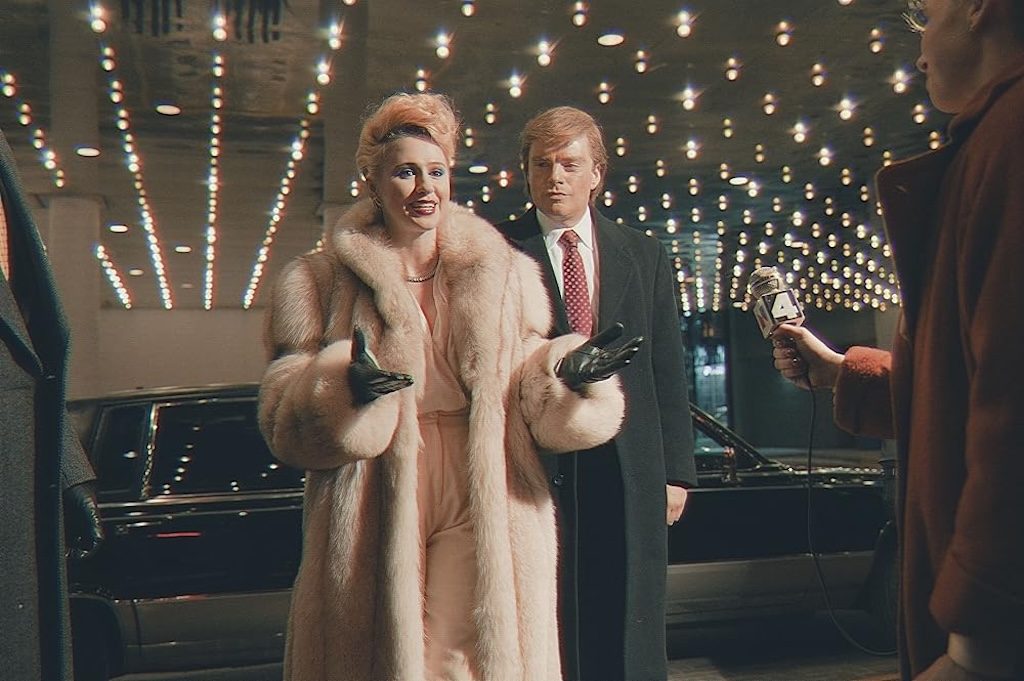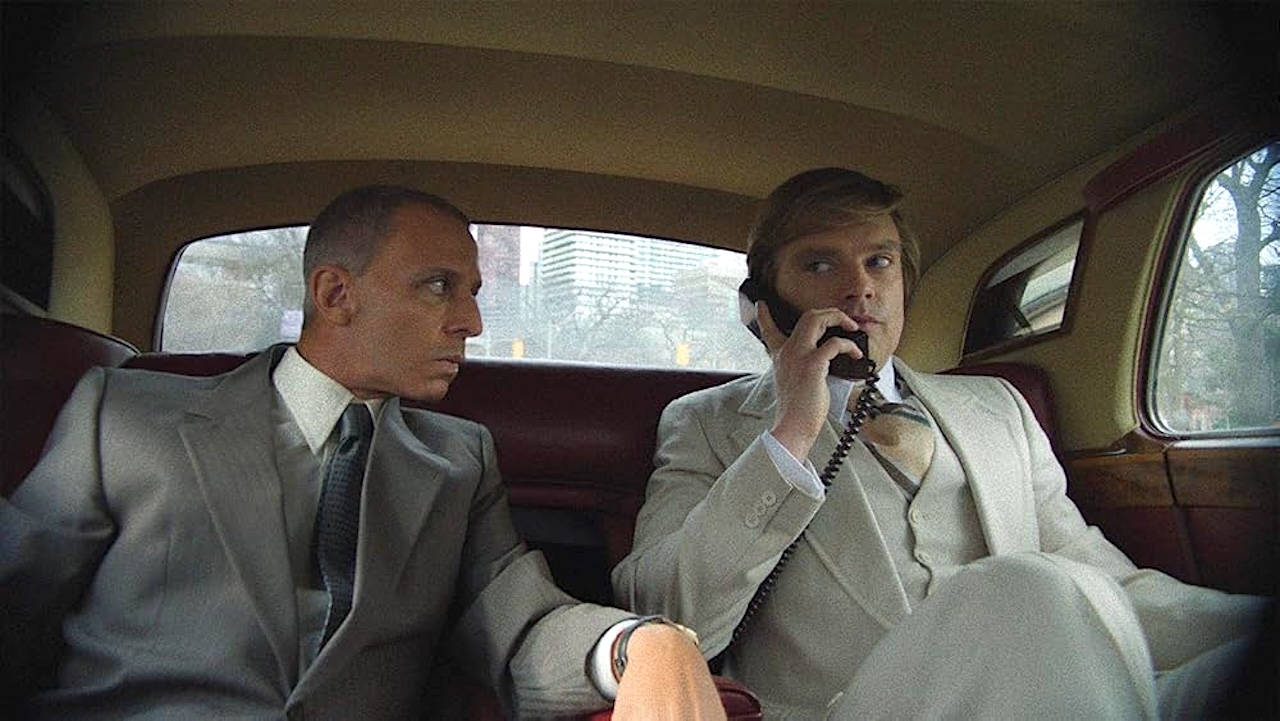Gabriel Sherman is known for politically-charged films and TV shows like The Loudest Voice about the life of Fox News founder Roger Ailes. Now, he returns with The Apprentice chronicling the life of Donald Trump during his real estate heyday in the 70s and 80s with his mentor Roy Cohn. It stars Sebastian Stan as Trump and Jeremy Strong as Roy Cohn.
Gabriel entered the writing world through journalism which shaped his comprehensive research skills into a good story. “My experience in journalism has always been through the lens of character,” he says. So, the transition from journalism into screenwriting was organic. He has written for The New Yorker and Vanity Fair.
“My first job in journalism was working for the New York Observer in the early 2000s. It’s a weekly paper, and at the time, was edited by the legendary Peter Kaplan who trained a whole generation of journalists. He liked to tell us to think of the newspaper like a Victorian novel that gets serialized and every week is a new chapter in the story of the city,” he explains. The New Yorker comprises non-fiction articles, and the idea is “that you’re thinking of New York City as this giant stage with all these larger-than-life characters playing out.”
Fifteen years later, Random House published his biography on Roger Ailes which was based on over six hundred interviews with him and his associates. “He really struck me as like a real-life modern-day citizen Kane figure and someone who had been so kind of corrupted and corroded by his own lust for power.” This principle is also evident in the way Roy Cohn and Donald Trump made their mark in New York.

Gabriel Sherman. Photo by Danny Kim
Sherman’s interviewing experience allowed him to explore these rich, indelible characters. Interviewing for print also allowed him to listen to how people speak, which in turn, shaped his love of dialogue.
Although Sherman realizes that journalism and screenwriting are distinct disciplines, he doesn’t see much difference between them. Both require telling a compelling story through a central character’s point of view.
The Rise Of Real Estate Mogul Donald Trump
Young Donald was the son of Fred Trump, a wealthy housing developer with little social status among New York’s elite. Donald wanted to change that by focusing on luxury real estate in Manhattan much to the chagrin of his provincial father.
“Donald was this classic Shakespearean character where you have a child who dreams of being more influential than his father,” contends Sherman. This mindset set the stage for him to be seduced by Roy Cohn.
Sherman notably focuses on the universality of Trump and Cohn’s relationship at the time, rather than Trump’s current politics. The story ends in 1986.
“I try as an artist to look at Donald Trump as a human being in the same way I would if I was writing a screenplay about an auto mechanic. At the end of the day, we’re all people, who’ve come from families that have their own their own dysfunction.” Sherman’s aim is to “render these characters as accurately as possible as human beings.” The screenwriter wants to dramatize rather than glamorize them.
Gabriel Sherman doesn’t need to embellish his already richly-interesting characters to make them interesting for his film. While writing The Apprentice, he stated where the information came from for his lawyers in almost every scene. In certain cases, capturing private conversations where he wasn’t present, meant Sherman exercised his best judgment in writing them as authentically as possible.
Certain events in the film were compressed in order to save time, especially for events that took place outside the years where the movie takes place.
The Apprentice – A Father-Son Story
Gabriel Sherman had a mountain of source material to work with. During 2016, he was a political journalist at New York Magazine and covered Trump’s presidential campaign. He had access to all kinds of pertinent information that most outsiders didn’t.
“I was struck by people who knew Trump since the 1980s like Roger Stone and Roy Cohn. In the spring of 2017, a few months into Trump’s presidency, when a lot of people were still grasping and processing this upside-down reality of the situation. The idea for The Apprentice came to me at that moment,” recalls Sherman.
Sherman considered writing an intimate drama exploring the relationship between the two men. A love story of sorts. “I wanted the movie to begin with Donald Trump’s meeting with Roy Cohn in 1973 and end with Roy Cohn’s death from AIDS in 1986.”
The Apprentice zoned in on the father-son story between Trump and Cohn. Roy Cohn never married or had children since he was gay, so he saw his legacy in a surrogate son he molded in his image.
“I always left the door open for Roy maybe wishing that Donald would fall in love with him. On some level, it is structurally a love story between these two men. A lot of the conflict in the second act arises from people who are trying to get in between them.” Fred Trump (Martin Donovan) doesn’t approve of Donald hiring Roy, and Ivana Trump (Maria Bakalova) doesn’t approve of Roy encouraging Donald to sign a pre-nup to protect his assets.

Ivana Trump (Maria Bakalova) and Donald Trump (Sebastian Stan).
Donald Trump is also a more effective and attractive frontman than Roy Cohn could ever hope to be. Roy was famously self loathing and his mother Dora made him get a failed rhinoplasty as a child to improve his looks.
Working With Director Ali Abassi
In order to counteract his insider bias, Gabriel Sherman chose a non-American director for The Apprentice. He chose Ali Abassi (The Last Of Us).
“Ali opened my eyes, not just about the Trump-Cohn relationship, but about the American system of power, money and success, and how this win-at-all-cost zero-sum culture rewards people like Cohn and Trump,” adds Sherman.
Behind every great fortune you’ll find a crime
The Apprentice illustrates this American system of capitalism of taking what you want and getting away with it. Abassi also wanted the film to be told through Donald’s perspective. Earlier drafts of The Apprentice were essentially an uneven two-hander with a third of the scenes told through Roy’s point of view and the rest through Donald’s.
Donald Trump is such a polarizing figure that audiences will likely have an opinion of the film based on their opinion of him. Sherman has a unique intention for the audience. “I want the audience to feel something that makes them like or dislike Trump more.” He doesn’t set out to change minds because most details of Trump’s life are already public. Sherman hopes audiences will look at Cohn and Trump’s relationship through a different lens.
